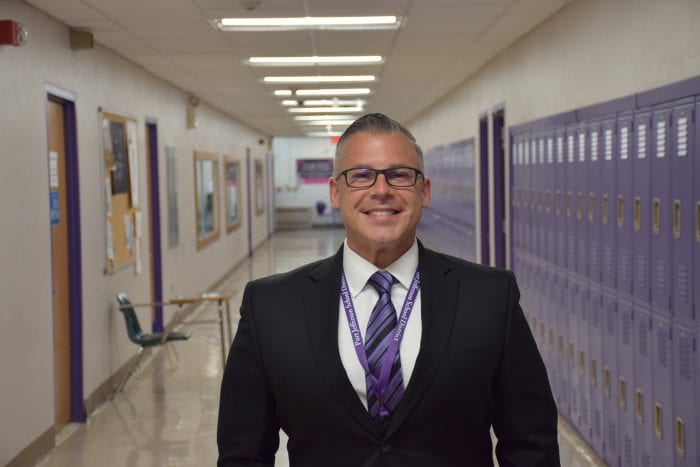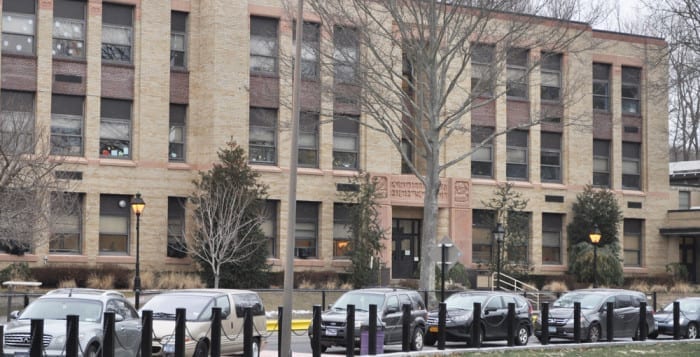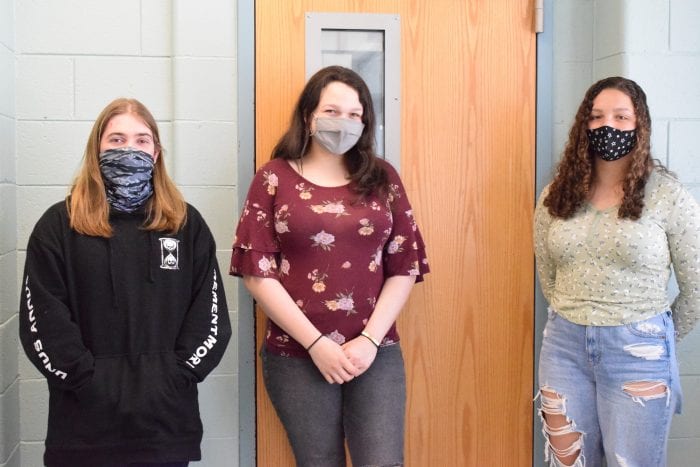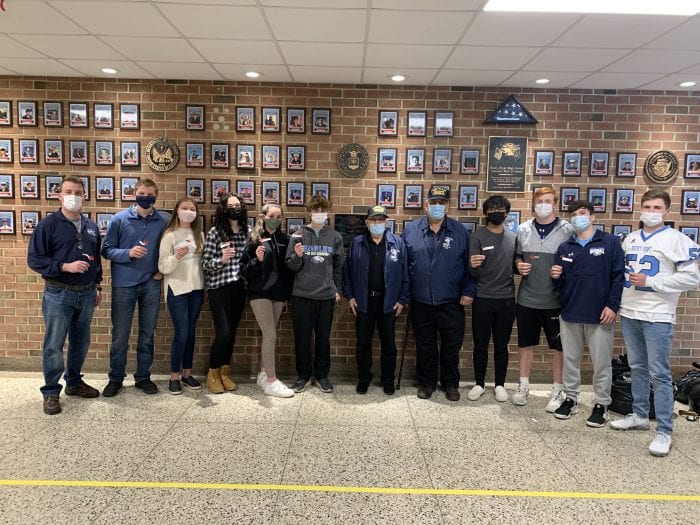On May 18, the Middle Country Central School District will vote on four new candidates to join, or continue on, the board of education.
Eight individuals are running for the four spots — one of them filling the remainder of an unexpired term created by the resignation of Dina Phillips that commenced on July 1, 2020. That seat is currently occupied by William Ferraro, whose appointment expires on May 18.
Arlene Barresi
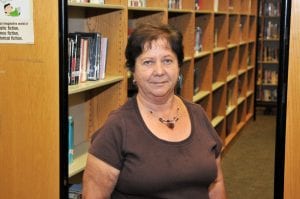 Arlene Barresi has been a district resident for over 43 years, with her two children and their spouses all Middle Country graduates. Two of Barresi’s five grandchildren are currently attending MCCSD schools.
Arlene Barresi has been a district resident for over 43 years, with her two children and their spouses all Middle Country graduates. Two of Barresi’s five grandchildren are currently attending MCCSD schools.
She said she has been committed to education for 34 years, previously employed as a school secretary, teacher aide and special education teaching assistant with Eastern Suffolk BOCES.
Although she retired in June 2006, she said serving on the board of education allows her to continue her commitment to education.
As a community member, Barresi was a Brownie and Girl Scout leader, as well as a religious education instructor.
During her time as a board trustee, she has chaired and served on the Legislative/Community Outreach, Bond, Evaluation, Business Advisory Board and Safe Schools committees. She also serves as a board trustee for Eastern Suffolk BOCES since 2015.
Up for reelection this year, Barresi has lobbied for education in Albany and in Washington, D.C.
“I’m glad to be running again,” she said during a virtual meet-the-candidates night on April 29. “I’ve been on the board for 16 years. We’ve accomplished a lot in our district.”
Arlene Barresi did not return calls to comment on district concerns and her plans as board member.
John DeBenedetto
 John DeBenedetto graduated from the Newfield High School in 1990 and has been a resident of Middle Country for the majority of his life.
John DeBenedetto graduated from the Newfield High School in 1990 and has been a resident of Middle Country for the majority of his life.
He graduated from Stony Brook University with a B.S. in Biology and a minor in Business Management. His Master’s degree is in Elementary education from Dowling College and his post-master’s degree from Queens College is in School Administration.
DeBenedetto, and his wife Kristin, has three school-aged children ranging from kindergarten to high school. They reside in Selden.
Currently a high school principal in another district, he has been in the education field for 23 years. His teaching experience ranges from elementary through high school. DeBenedetto is currently a co-principal for the William Floyd School District.
During his tenure as a principal, he has been instrumental in creating new programs for students, improving student performance on state exams, and helped to increase the graduation rates for two high schools. DeBenedetto currently volunteers for the local Cub Scouts troop.
As a first-time runner, he said his goal is make sure MCCSD’s students are ready for the real world.
“A big concern for me is making sure our students are when they graduate, college and career ready,” he said.
He said he’s choosing to run because this community helped him become the person he is today.
“With the recent concerns regarding the state budget, my goal is to ensure that Middle Country receives the funding we need to challenge our students, to provide our teachers and administrators with the resources they need to be successful,” he said.
Sandro Fernandes
Sandro Fernandes did not respond to multiple attempts for an interview.
William Ferraro
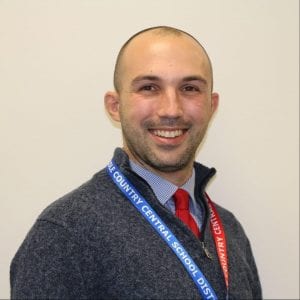 William Ferraro has been a resident of the Middle Country school district since 2016. He and his wife, Kerry, have two children in the district — their oldest in first grade and youngest who will be entering pre-K next year.
William Ferraro has been a resident of the Middle Country school district since 2016. He and his wife, Kerry, have two children in the district — their oldest in first grade and youngest who will be entering pre-K next year.
Ferraro is a senior contract manager for the New York City Administration for Children’s Services.
He was appointed last fall to fill a vacancy on the board.
“I always wanted to serve on a school board when my children were in school. It was a big goal of mine,” he said.
Ferraro joined the Legislative/Community Outreach Committee as a private citizen, helping with issues like lobbying to get cameras on school-bus stop signs and getting Stagecoach Elementary School in Selden shut down as a polling site.
“I’d like to keep serving because this is extremely important to me — as a father, as a community member,” he said. “I think there’s a lot of good that somebody can do from a school board. I like being able to provide constituent services. I like being able to listen to parents and listen to district employees about what their needs are. And if I can go to the administration and go to the board, or propose a change, that at least provides a voice to those who feel like maybe they’re not heard. I can do that.”
Ferraro said his three main priorities are to continue the safe return to school during COVID-19.
“I want our kids to get back to normal, but we have to do it within the confines of the CDC and what the county Department of Health [Services] is asking for us,” he said. “My personal opinion is that we’re not going to be wearing masks for too much longer, but while we’re still required to do so we have to continue to sacrifice and continue to move forward, and make the school experience as normal as possible.”
He added that special education is a big focus, saying it can be better in the district.
“We can always get more funding into that area. I have been on every SEPTA call since being appointed to the board, and I will continue to be as responsive as possible,” he said.
Ferraro said his third biggest focus is the budget.
“I’m proud that this year with our budget, we did not pierce the tax cap and we held to the lowest tax [levy] increase at 0.88%, and to do that during COVID, while maintaining funding for programs, and not having to fire any teachers or staff, I think is a great accomplishment for our district,” he said.
Robert Hallock
 Robert Hallock is a father of three children who all attend the Middle Country school district. He has worked in New York City as a police officer for almost four years.
Robert Hallock is a father of three children who all attend the Middle Country school district. He has worked in New York City as a police officer for almost four years.
Before joining the force, he worked with the traffic courts and for the Town of Brookhaven Public Safety Department.
“I wanted to run mainly because of the information that I’ve been getting from the teachers,” he said.
Hallock noted that his oldest son, a kindergartner, is in an individualized education program.
“We’ve had to do a lot of different steps in order to get him the best education possible,” he said. “And it’s been a true struggle.”
He began attending board meetings because he knew it was impacting his child and the teachers who have been guiding his family throughout this process.
“Since they helped me, and continue to help me, it’s my chance to give back,” he said.
Hallock said he thinks he has the “upper hand” on safety and security, noting his experience with law enforcement. He also wants to see if the district can get more funding for its special education program.
“We have one of the best special education programs in Suffolk County, if not Long Island,” he said. “People really rave about it, and I didn’t realize it until I was in the middle of it.”
And on top of security and special education, Hallock wants to fight back on COVID-19 restrictions in the schools.
“I’d love to see the masks come off of our students,” he said. “I want to see the board be in-person in meetings instead of on Zoom. If the kids are back in school, we’re supposed to be an example for the district.”
Hallock said they are “lucky” to have a five-day in-school program and plans to ensure students continue to have live learning.
He said he’s doing this because he’s a concerned dad in the district.
“A lot of people use this as a stepping stone to get into politics,” he said. “And I hate that, personally. It shouldn’t really be about politics in this area.”
Karen Lessler
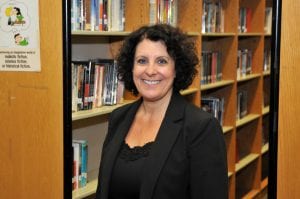 Karen Lessler has lived in the Middle Country school district for almost 40 years, leaving Northport to settle with her family in Centereach. She has two adult sons with children of their own.
Karen Lessler has lived in the Middle Country school district for almost 40 years, leaving Northport to settle with her family in Centereach. She has two adult sons with children of their own.
Lessler’s husband of 35 years, George, is a graduate of Newfield High School.
The current BOE president and a high school assistant principal by day, she said she decided to run for the board of education more than two decades ago to help improve the district.
“I continue to focus on what is best for students and how can we make positive changes for our children and the community,” she said in an email. “The value and reputation of our schools is a reflection of our community and home values. I want not only what’s best for students but what’s best for our community as a whole.”
Lessler said her experience as an educator brings a lot to the table. A teacher for 18 years, and a board member for 21 years, she also received a doctorate degree in education.
“I have experience in lobbying, negotiations and policymaking. I also have very strong leadership skills,” she said. “I think experience matters.”
Two issues she wants to address if reelected is the current impact of COVID-19 on students, and the implementation of several programs to help Middle Country students adjust to school full-time.
Lesser wants to address the social, emotional and academic impact the pandemic has had on students, also the continuous loss of state revenue.
“More mandates-less funding translates to higher property taxes or cutting programs,” she said. “It’s a challenge to implement a five-year plan when the State of New York works on their budget annually.”
She added she will continue to support programs implemented by the superintendent, and meet with elected officials, along with other districts, to address concerns.
“Over the years there have been many success stories,” she said. “The Middle Country school board was the group that stopped the MTA tax on Long Islanders. The pre-K grant we receive each year was the efforts of the school board. A grant for $500,000 for our life skills program was also the efforts of the school board. And most recently, the camera on the school buses was a Middle Country school board initiative.”
Deborah Mann-Rodriguez
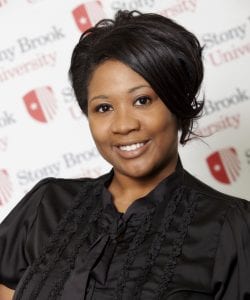 Deborah Mann-Rodriguez, a graduate of the Middle Country school district and Stony Brook University, is looking to run for the board of education.
Deborah Mann-Rodriguez, a graduate of the Middle Country school district and Stony Brook University, is looking to run for the board of education.
She has been employed at Stony Brook University for approximately 22 years, mostly dedicated to supporting faculty members with acquiring funds for meaningful research from federal, state, and philanthropic agencies. In her role, she manages all of the grants, contracts, sub-awards, clinical trials that come from the SBU College of Engineering and Applied Sciences, which is composed of nine academic departments and five academic programs, including Women in Science and Engineering.
Additionally, she earned a bachelor’s in health science and disability studies and a master’s in health care policy and management, both from Stony Brook University.
She and her husband have two daughters who attend Middle Country schools.
“I decided to run for this office because I have two amazing kids in the district,” she said in an email. “I have the unique vantage point of being a graduate of MCCSD, having children that are currently in the district, having family and friends who are educators, administrators and support staff within the district.”
She said running for this position is “uncharacteristic” of herself.
“I have never run for any political office and I am not using this opportunity as a stepping stone for something more grandiose,” she said. “I’m doing it for my two children, my two nieces and one nephew, and all of our kids in this community.”
Mann-Rodriguez said her main goal is to ensure that all students, parents and educators feel safe, acknowledged and supported in this community.
“I will work to ensure that our children have the opportunities they deserve in order to succeed,” she said. “I will do this by helping to organize synergistic activities between MCCSD and the surrounding higher education institutions, such as Stony Brook University, Suffolk Community College, Hofstra University and St. Joseph’s College.”
She added that as board member, she wants to encourage interest in STEM fields among the students of Middle Country.
Mario Nicoletto
 Mario Nicoletto is a 20-year-old Centereach High School graduate who grew up in the Middle Country school district.
Mario Nicoletto is a 20-year-old Centereach High School graduate who grew up in the Middle Country school district.
Currently a student at Suffolk County Community College, he has worked in government and local politics for over two-and-a-half years.
He said the reason he decided to run was because he was in the shoes of the district’s students not too long ago.
“The average age of graduating high school is 18,” he said. “My point being, I’m a better representative of students than I would say, really any of the other six folks.”
He said that with the exception of fellow candidate Will Ferraro, there are no millennial or Gen Z representatives on the board.
“I feel like, wouldn’t you want students to represent students?” he said. “I know the ins and outs. I’m not just some guy, and I’m not a teacher, not a cop. Obviously, I’m not a PTA member, I’m not a parent. I’m a real human being and I’m just trying to help out all 61,000 people that live here.”
Nicoletto has been working with state Sen. Phil Boyle (R-East Islip) representing the 4th Dis-trict as a legislative intern. Previously he helped U.S. Congressman Lee Zeldin’s (R-NY1) campaign as deputy office manager.
He said his biggest concern is the budget.
“I am against the budget,” he said. “I think that we should have more reconciliation when it comes to things like that.”
Although he said he likes “some parts of the budget,” he is unhappy that last year 78% of it went to faculty.
“I’m not talking about the teachers, I’m talking about the people up top,” he said. “And that, frankly, doesn’t make a whole lot of sense to me.”
Nicoletto said that when 25% of those people are under the age of 21, he believes more money should be given back those who could benefit from it.
“I think that we should be given more money to our students and more money into programs that will help us have a dialogue with the community,” he said.
He also wants to make safety a top priority, as well as managing the COVID-19 crisis.
“I genuinely believe that if a student is vaccinated, he or she should not be mandated to wear a mask,” he said. “But I also don’t think that we should mandate every student to have the COVID vaccine.”
For security, although the there is a school resource officer, he thinks there should be more done.
“I don’t think that’s going far enough,” he said. “I would like a legitimate school resource officer with arms, such as a handgun.”
Nicoletto said the district could use a revamp in its security system by hiring retired police officers and military.

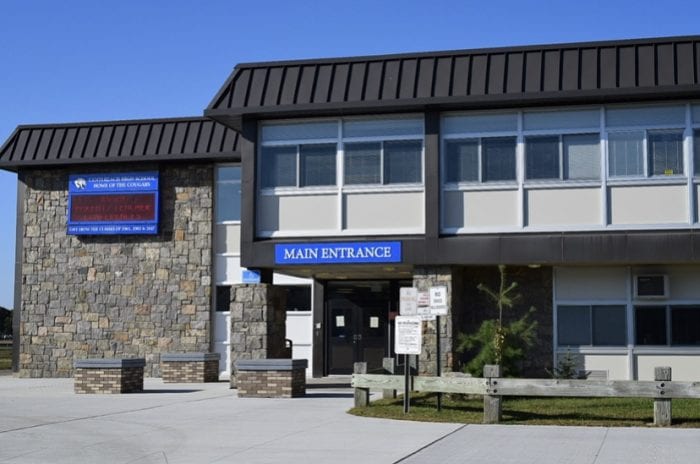
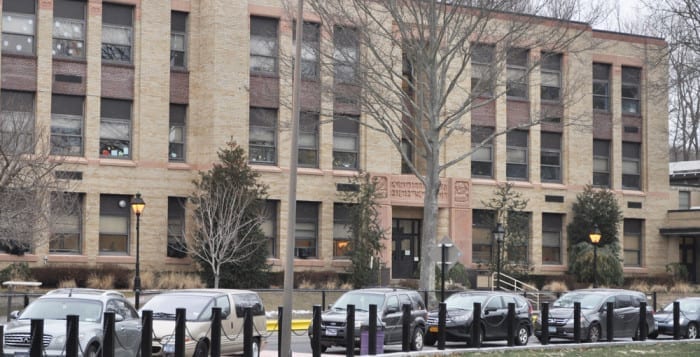
 Shannon Handley has lived with her family in Port Jefferson for 22 years.
Shannon Handley has lived with her family in Port Jefferson for 22 years.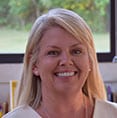 Rene Tidwell has been a Port Jefferson resident for 20 years.
Rene Tidwell has been a Port Jefferson resident for 20 years. Ryan Walker is running for reelection with the board.
Ryan Walker is running for reelection with the board. Tracy Zamek is seeking a third term as a trustee on the Port Jefferson school board.
Tracy Zamek is seeking a third term as a trustee on the Port Jefferson school board.

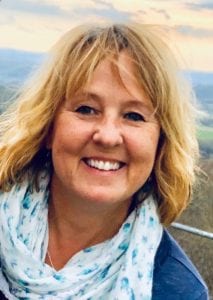
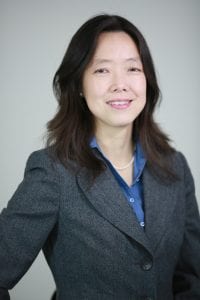
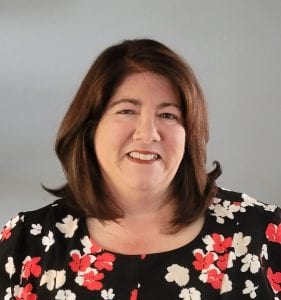
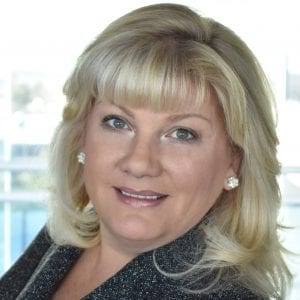
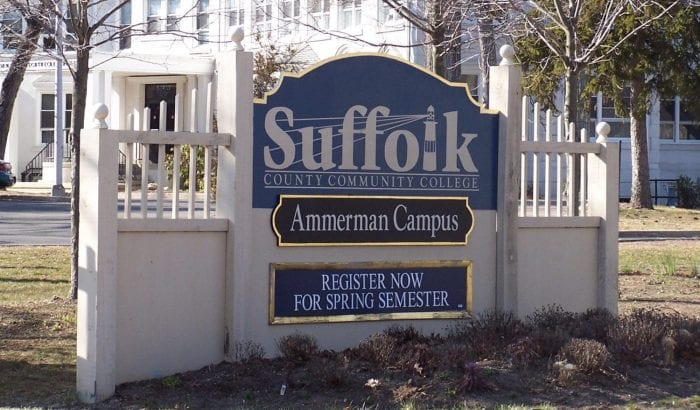
 “SUNY Suffolk is the largest community college in our system, serving more than 22,000 students with a high-quality and affordable education to jump start careers or provide the launching pad for further degrees, and we are pleased to have Dr. Bonahue join the SUNY family to lead this multi-campus College,” said Chancellor Malatras. “We thank Interim President Lou Petrizzo for making sure our students could succeed in their studies during this pandemic, and at the same time help the community as a vaccination site. Now with President Bonahue joining the team, we look forward to celebrating the end of this academic year and look forward to a fuller reopening this fall.”
“SUNY Suffolk is the largest community college in our system, serving more than 22,000 students with a high-quality and affordable education to jump start careers or provide the launching pad for further degrees, and we are pleased to have Dr. Bonahue join the SUNY family to lead this multi-campus College,” said Chancellor Malatras. “We thank Interim President Lou Petrizzo for making sure our students could succeed in their studies during this pandemic, and at the same time help the community as a vaccination site. Now with President Bonahue joining the team, we look forward to celebrating the end of this academic year and look forward to a fuller reopening this fall.”